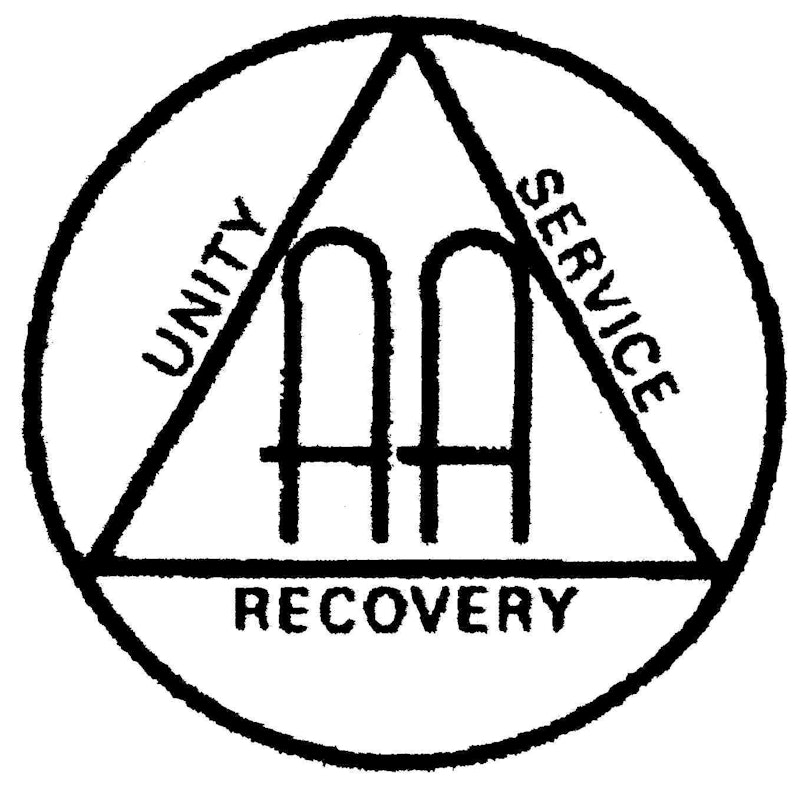I went to AA back in October because an addiction specialist doctor, whom I’ll call Dr. James, told me to. Previously I vowed to avoid AA and only do SMART Recovery because 1) SMART Recovery is science-based and 2) there’s no need for a supernatural higher power in SMART. Back in September, however, I had another binge drinking relapse, and my therapist said Dr. James would help me get stronger. In some ways he has; he put me on some new meds that work a lot better than previous ones. However, Dr. James insists that the Twelve Step approach is the most effective way to maintain sobriety, even though I told him I was in SMART Recovery. Finally worn down, I starting attending the first daily AA group I could find that met at a reasonable time.
I got more out of being among fellow recovering alcoholics than from the steps. The first step itself is easy enough; no problem admitting that I can’t stop drinking once I start. From there, though, the Steps get dodgy: turn everything over to God, write down all your moral flaws, confess your sins, and ask God to make you a better person. As an ex-Christian, the Twelve Steps sounds like a watered-down Gospel of Jesus.
Technically, that’s not far from the truth. AA co-founder Bill Wilson was heavily influenced by the Christian fellowship the Oxford Group, which believed the source of all misery comes from selfishness and fear, and the only cure is total surrender to God. Wilson sought the Oxford Group to help him overcome alcoholism, but it wasn’t until he had “spiritual experience” while under the influence of a hallucinogenic drug that he finally stopped drinking. Wilson gave all the credit to God, and centered his Twelve Steps on total surrender to God’s will.
Dr. James says “God” doesn’t have to mean a divine being; a more appropriate acronym is Good Orderly Direction. There are also several alternative Twelve Steps that offer secular substitutes. One of is B.F. Skinner’s Humanist Twelve Steps, where trusting a support network replaces submission to God. It makes sense because, unlike gods, I can prove that other people exist. Also, isolation a big triggers; the more time I spend alone, the more the negative voices in my head taunt me. I told Dr. James about Skinner’s alternative Twelve Steps, but he wasn’t convinced. He gave the “Science doesn’t know everything yet” argument often heard from Christian apologists. It’s never a good sign when medical professionals use evangelist rhetoric.
I wonder if Dr. James is aware of all the scientific studies that cast doubt on the Twelve Steps’ effectiveness. Some say high AA meeting attendance rates lead to longer periods of sobriety, while Dr. Lance Dodes claims there’s only a five to 10 percent success rate. As far as how AA compares to other forms of recovery, one study shows AA and cognitive behavioral therapy (CBT)—which is what SMART Recovery uses—are equally effective. Plus, according to Recovery.org, the Twelve Step approach “has no scientific basis,” although it has helped many recovering addicts.
Perhaps there’s no uniform solution to treating addiction. All addicts have something they can’t get, so they turn to drugs and alcohol to fill that need. It makes sense to have multiple options available that address different unfulfilled needs. For some, there’s CBT and SMART Recovery to help addicts deconstruct bad ideas deeply embedded into their brains. For others, like my Uncle Ronnie, the Twelve Step method is the only one that can get them to stop using. I’m weighing my options because I still don’t know what my needs are. Maybe it’s a mixture of rational thinking from SMART, fellowship from AA, and chemical balance from psychiatry. But the answer doesn’t lie within the heavens; it’s somewhere here on Earth.

